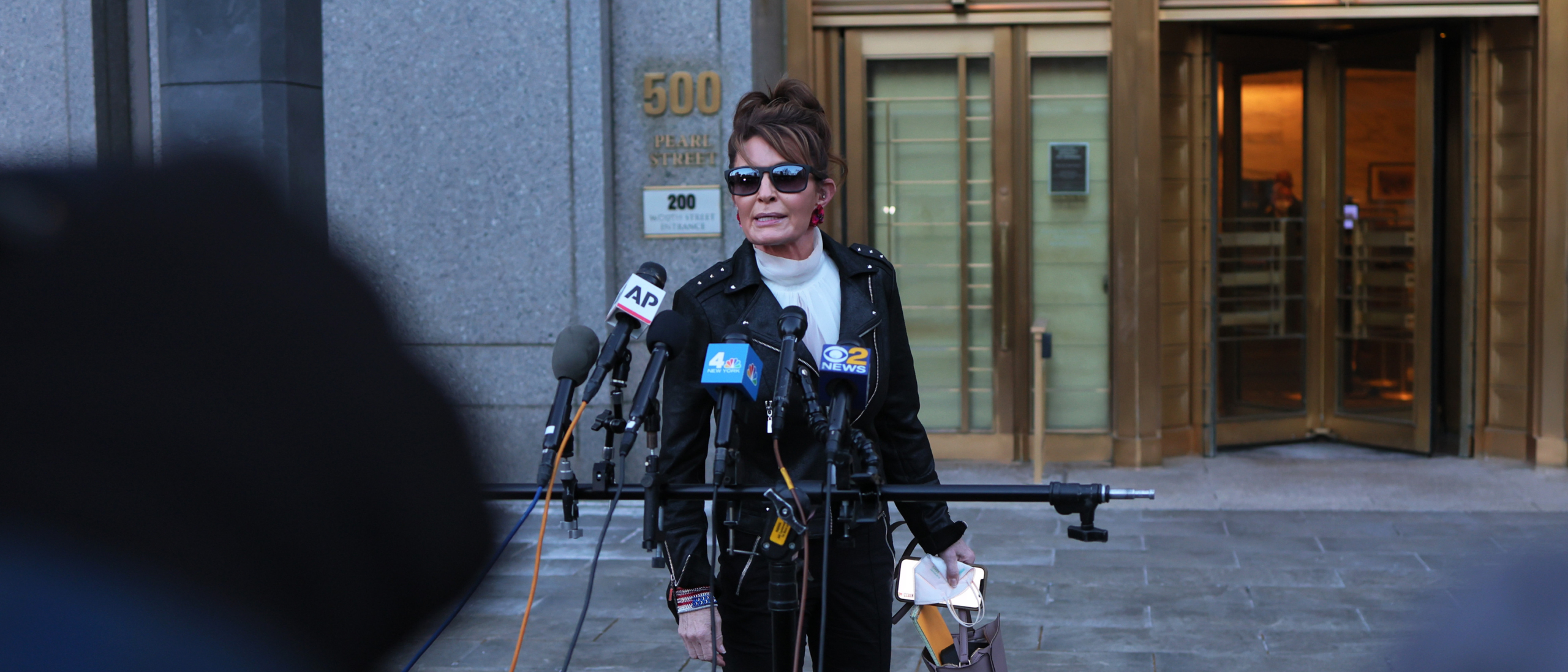Sign up for the daily CJR newsletter.
The New York Times is not liable in a case of alleged defamation brought by Sarah Palin, a unanimous nine-person jury found on Tuesday afternoon in Manhattan.
The federal case, Sarah Palin v. New York Times Company, tried in the Southern District of New York, was the first defamation case against the paper to reach a jury trial in eighteen years. It was filed in 2017 in response to an article by the Times editorial board that inaccurately linked the former Republican vice-presidential nominee and governor of Alaska to the shooting in 2011 that wounded Rep. Gabrielle Giffords and killed six others.
But the jury, who rendered their verdict this afternoon, after nearly fifteen hours of deliberations over three days, did not know that the judge in the case, Jed Rakoff, had already planned to find in favor of the Times on procedural grounds.
Palin’s lawyers, he said, hadn’t provided evidence that the Times and James Bennet, the former editor of its opinion page and a codefendant in the case, had intended to harm Palin, a requirement in defamation cases against public figures.
Had the jury disagreed, the Times would still have prevailed, and the jury’s judgment would have been preserved in case Rakoff’s decision was reversed on appeal. But, in the end, the jury reached the same conclusion he did. “Your job was to decide the facts; my job is to decide the law,” Judge Rakoff told the jury. “As it turns out, they were in agreement in this case.”
In the courtroom, Bennet appeared relieved but declined to comment.
A spokesperson for the Times called the verdict a “reaffirmation of a fundamental tenet of American law: public figures should not be permitted to use libel suits to punish or intimidate news organizations that make, acknowledge, and swiftly correct unintentional errors.”
“We’re obviously disappointed with this verdict,” Palin’s lawyer Ken Turkel, who was a member of the legal team that had successfully represented Hulk Hogan in a 2016 case against Gawker Media, told reporters outside the courthouse in Lower Manhattan.
“That being said, any time a jury convenes and renders a decision, that is our system—that’s what’s allowing a private citizen like Governor Palin, or any private citizen, to seek redress against a giant media company who holds so much power.
“Obviously we felt yesterday’s order was disappointing, and from our perspective, it was premature,” said Turkel, referring to Judge Rakoff’s statement that he would dismiss the case himself as a matter of law regardless of the jury verdict.
Palin nodded along but made no comment.
Has America ever needed a media defender more than now? Help us by joining CJR today.







